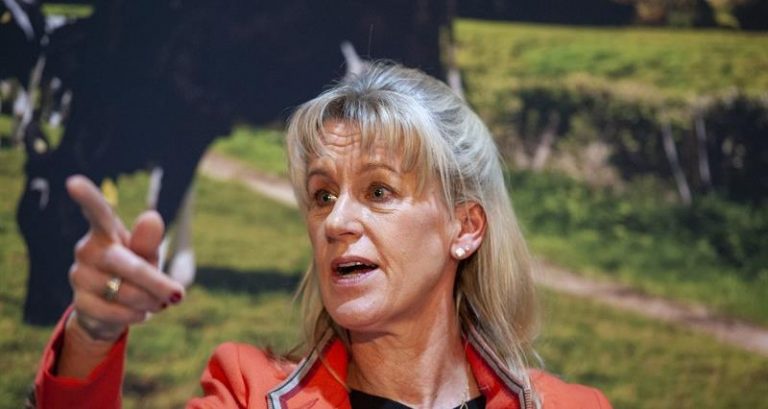Hull-based Sewell Group has invested in 25 graduates, apprentices and trainees this year, after pledging to support people who may struggle to enter the world of work.
The company’s Gateway Project, launched two years ago, aims to triple the number of graduates, apprentices and trainees recruited into the business, as well as providing opportunities for young people to gain real-world experience and skills. The company is on target to have 15% of its total workforce made up of these career-starting roles, and almost 50 people have benefitted from the scheme since 2021. The Gateway Project promotes opportunities for the communities Sewell Group serves, in support of local economic recovery. As well as job opportunities in entry level roles, so far in 2023 the company has also provided 290 days of work experience and internships for young people who are looking to start a career in the industry. Sewell Estates MD Jo Barnes, said: “We’ve always found it rewarding to bring in new talent and develop them into the leaders of the future. But making a definite pledge to triple our recruitment of entry level positions has really made us focus on how we can provide as many opportunities as possible. “Since the pandemic, so many young people had their education disrupted, and they’ve found it very difficult to find jobs without being able to gain experience. We firmly believe that skills can be learned on the job, and we prefer to recruit for culture fit and attitude. “We’re already seeing the benefits of our recruitment drive, with our new recruits bringing in creativity, drive and new ideas to the business. We’re looking forward to finding what they excel at and developing their skills to become the next generation of leaders.” Several of Sewell Group’s senior leadership team progressed themselves from trainee, graduate or apprentice roles, so they know how valuable these opportunities are. Mark Boothby, Joint MD of Sewell Construction, joined the company in 1996 as a trainee. He said: “Being given the chance to join a company that supports and develops its people enabled me to grow and learn the culture of the business, along with skills for carrying out new roles. There have been a number of opportunities for growth since I joined, which have resulted in me co-leading Sewell Construction. I recognise and feel responsibility to reinvest in apprentices and trainees to give young people the support and opportunities I’ve had in my own career, as at a young age you never know where your career may take you.” Sewell Group is known as a construction company, but the Group has diversified considerably in the last 20 years, with forecourt convenience stores, facilities management, property investment and development partnerships and consultancy all now forming part of its business.Drax appoints Chief Sustainability Officer
They’re off! Doncaster businesses celebrate for return of the St Leger Festival
An airport in Doncaster is a viable proposition, says report
Next week, City of Doncaster Council (CDC) Cabinet will hear updates on several strands of work looking at the viability of a reopened airport, its economic and growth potential as well as its investment opportunities.
- The airport has the potential to be successfully reopened and could be profitable within five years of reopening
- It could attract up to two million passengers a year within a decade, which is considerably higher than the annual passenger numbers achieved prior to its closure
- It could bring almost 5,000 direct jobs as well as creating up to 11,500 jobs in the wider economy
- The net economic benefits of reopening the airport could be up to £1.5 billion within the first three decades of operating
- Reopening the airport offers the most favourable balance between economic cost and benefit and is the preferred option
Smarta Water secures £500,000 investment
High profile property development director joins BRM Solicitors
Regional law firm BRM Solicitors has appointed a new director to its Real Estate team.
Julie Carr joins from national law firm Knights, bringing with her extensive background in handling residential property development, guiding conditional contracts for purchasing and selling development land, and managing options and overage agreements.
Julie also oversaw planning promotion agreements, joint ventures, and various collaborative arrangements, coordinating land assembly, and establishing development sites for plot sales.
BRM’s 26-strong property team now includes nine directors and counts Woodall Group, Gleeson Homes, Reef Group and Global Brands among its clients.
Adrian Sheehan, head of BRM’s Real Estate department, said: “The addition of a new director is a significant move for us and reflects our ambitious strategy for BRM’s Real Estate Department. Julie’s strong track record and breadth and depth of experience highly complement our growing residential developer client portfolio, whilst we provide her with a platform regionally and nationally.”
Julie Carr added: “BRM’s department has developed an enviable client portfolio and earned a well-deserved reputation as one of the most highly regarded in the region. I’m looking forward to being part of its future growth.”
Law firm’s partnership with Yorkshire Dales Millenium Trust continues to grow
Estate agents ‘HOP’ on the bike for gruelling 2,300km charity challenge
A team of estate agents will take on a relentless charity cycle next week to raise money for Cancer Research UK, as they attempt to cover a whopping 2,300km in just five days, which equates to the number of people that will die from cancer in the UK during the challenge.
Every member of HOP’s team will complete at least six hours on a bike outside the estate agent’s Horsforth office on New Road Side, starting on Monday 18th September and finishing on Friday 22nd September. The team will aim to clock up 460km, or 286 miles, on each of the five days.
As well the cycling challenge, the company will also be hosting a HOP Bake Sale on Friday 22nd September in its Horsforth office, with cakes, buns and other sweet goodies all for sale.
Luke Gidney, Managing Director from HOP, said: “It’s a sad fact that 460 people die from cancer in the UK every day. For the past 120 years Cancer Research UK have been making discoveries that have saved countless lives, but there is still so much more to do and we’re hoping to support their work by raising £2,300, which will be a pound for every kilometre we cycle.
“The challenge won’t be easy and will involve every member of HOP’s team jumping on a bike for a minimum of six hours throughout the week and any donations, as well as friendly support or words of encouragement during the week, will be hugely appreciated!”
Anyone wanting to sponsor the team can do so in person, on New Road Side, during the duration of the challenge, or by visiting hop-property.co.uk or hop-charity-fundraiser.
CBRE appointed to manage £840m fund
Step forward in transformation of Goole’s historic Market Hall
CATCH named as one of three finalists for national award
Farmers welcome Government announcements – but say they’re a million miles away from promises made
The Lincolnshire Showground gets ready for Christmas Party Nights
KCOM engineers aim for ten million steps to raise cash for charity
KCOM engineers are putting their best foot forward this month as they attempt to walk 10 million steps for charity.
More than 200 engineers from the Hull-based broadband provider are stepping up to take the challenge, which will see them attempt the walk the equivalent of 5,000 miles to raise money for the Brain Tumour Research charity. John Teasdale, Head of Network Delivery at KCOM said: “This is a fantastic event to be part of and I’m delighted that my KCOM colleagues are putting their best foot forward for this excellent cause. We have a big step count to reach but I know we can make it if we all pull together, like we always do at KCOM when we have a challenge to face. KCOM engineers will be joined by Ricoh team members who have joined KCOM recently to help deliver our copper to fibre network upgrade and delivering land line fibre adapters across the region.” Colin Sneddon, MD of KCOM Wholesale, who is taking part in the challenge, has a very personal reason for taking part this month after recovering from a brain tumour himself two years ago. He said: “As well as helping our teams to get fighting fit, they’ll also be raising money for Brain Tumour Research, a great charity that’s raising much-needed funds to fight an often overlooked disease. Colin is also urging people to sign a petition by Brain Tumour Research asking the Government to ring-fence £110 million of current and new funding to kick-start an increase in the national investment in brain tumour research to £35 million a year by 2028. He said: “Research into brain tumours receives just one per cent of national funding into cancer research despite the fact that it kills more children and adults under the age of 40 than any other cancer. We need 100,000 names on the petition by the end of October to get a parliamentary debate on the issue and hopefully help secure funding that will save many lives. It would be absolutely brilliant if the people of Hull and East Yorkshire would spare a few minutes to help us reach this petition target.” It takes around 2,000 average steps to walk a mile – meaning 10 million steps is the equivalent of 5,000 miles – which means KCOM engineers are going to have to get their walking boots on between house calls and network upgrades while also record all the steps they’re taking.Artist impressions revealed as landmark Cleethorpes building progresses
Sixty line up for honours in Remarkable East Yorkshire Tourism Awards event
REYTA 2023 Finalists
Remarkable Accessible and Inclusive Tourism Award- Broadgate Farm Cottages
- Hull Truck Theatre
- The Old Stables – Nordham Cottages
- Ivanhoe Guest House
- Hull Trinity Backpackers
- Wolds Village
- Aura Innovation Centre
- Bridlington Spa
- Connexin Live, Hull
- Mercure Hull Grange Park Hotel
- The Manor Rooms
- Acorn Glade Glamping
- Butt Farm Caravan, Camping & Glamping Site
- Kingfisher Lakes Glamping & Log Cabins
- The Paddock Pods at Homeland
- Thorpe Hall Caravan, Camping and Glamping Site
- Wold Escapes
- Broadgate Farm Cottages
- Laurel Vines Vineyard and Winery
- Pasture House Holiday Cottages
- William’s Den
- Cobwebs and Cream Teas at Burton Constable
- Hotham’s Gin School at Hotham’s Gin School and Distillery
- Meerkat Experience at Bridlington Animal Park
- What Was Here? App
- Highfield
- Loftsome Bridge Hotel
- Mercure Grange Park Hotel
- Village Hotel Hull
- Bemora
- Dumble Farm
- Pasture House Holiday Cottages
- The Manor House Beeford
- Trinity Room
- Atom Bar Beverley
- Atom Bar Hull
- The Old Star, Kilham
- The Ship Inn, Sewerby
- Broadgate Farm Cottages
- Kipling House Barn
- Pasture House Holiday Cottages
- Still Rabbit Lodges
- The Coach House, Driffield
- Wressle Grange
- Drewton’s Farm Shop
- The Balloon Tree Farm Shop & Café
- The Fiddle Drill
- The Old Lamp Room
- Wolds Village
- Ambiente Tapas Hull
- Dockside Kitchen
- Highfield – 1864
- The Hispanist
- William’s Den
- Sledmere House and Gardens
- Sewerby Hall and Gardens
- William’s Den
- Atom Brewing Co
- Cherry View Ice Cream
- Laurel Vines Vineyard and Winery
- Soanes Poultry
- Twisted Roots Distillery
- East Riding Rally Stages 2023
- Hulloween Steampunk Festival
- Pride in Hull
- Sewerby Winter Woodland
- The Awakening
- Tribfest Music Festival
Smurfs walk 34 miles to raise £1,500 for Cancer Research
Dog food company expands with new 133,606 sq ft Doncaster facility
Leeds accountancy practice merges with Derbyshire company
Yorkshire distillery wins third-party accreditation for the way it does business
Yorkshire’s Ellers Farm Distillery has been awarded B Corp Certification for its work to establish itself as part of an inclusive, equitable, and regenerative economy.
The B Corp verification process, administered by the nonprofit B Lab, measures a company’s social and environmental performance, and to become a Certified B Corporation, Ellers Farm Distillery has undergone a rigorous review of the impact of its operations and business model on its workers, customers, communities and environment.
Based outside Stamford Bridge in North Yorkshire, Ellers Farm Distillery has been carbon neutral since day one and produces a range of spirits.
It has implemented a number of actions, with the intention of increasing its positive impact on the environment, employees and local community:
It has:- created a unique profit sharemodel by which 20% of the company’s profits will be distributed to employees. This avoids the complications of employee shareholder models while ensuring a portion of the wealth created by the business is distributed to those who work for the business.
- supported the planting of 5,000 trees in conjunction with Ecologi.
- planted 2.5 acres of apple trees in the adjacent fields. These trees not only remove carbon from the atmosphere as they grow, but create a biodiverse habitat that benefits local pollinators, birds, and mammals.
Tabatha Hurst, Head of Sustainability at Ellers Farm Distillery, said: “This has always been a goal for Ellers Farm Distillery and we’re thrilled that just two years into our journey we’re now a Certified B Corp. Becoming a fully-fledged part of the global community of B Corps is an honour and we see this as a statement of intent for our business to continually improve our impacts on our employees, community, environment and supply chain.”
Chris Fraser, Founder & Chairman at Ellers Farm Distillery, added: “I’m so proud of the team here at Ellers Farm Distillery for this great achievement in becoming a Certified B Corp so early in our journey as a business. Since the beginning our whole team has been focused on balancing people, planet and profit. Becoming a Certified B Corp is a great endorsement of the work we have already done but it also helps us identify areas that we can focus on to continue to improve.”






















